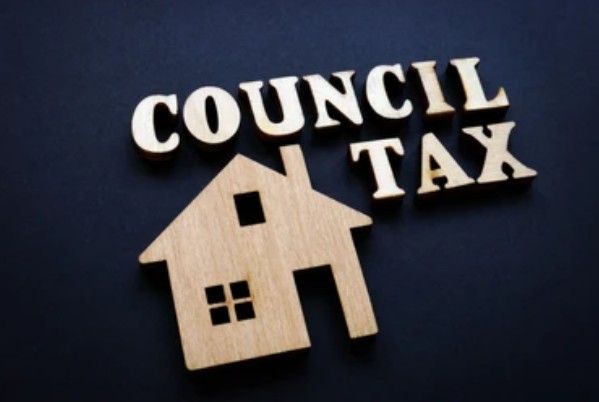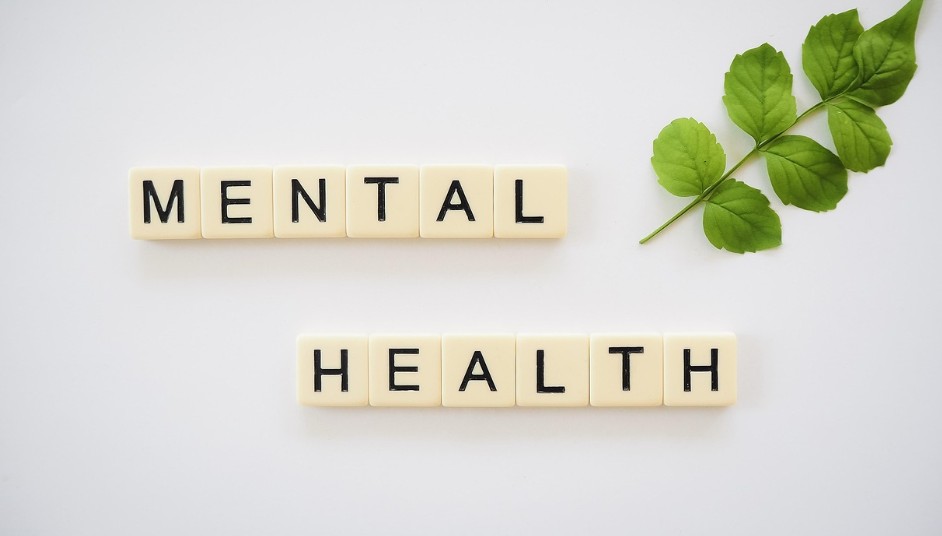Living with depression or anxiety can affect every part of your life — your relationships, your career, and your finances. But did you know that if your mental health conditions significantly impact your ability to live or work, you may be entitled to a range of financial benefits in the UK?
Thousands of people across the UK are asking, “What benefits can I claim for depression and anxiety uk?” This guide answers that question fully — with clear breakdowns, real UK case examples, and practical next steps. Whether you’re currently employed, unemployed, or too unwell to look for work, help is available.
Why Are Mental Health Benefits So Important?
Mental illness is one of the most common reasons people in the UK are signed off work. According to the NHS and Mind UK, depression and anxiety now account for a significant proportion of long-term sickness claims. Yet many people delay applying for benefits because of stigma, lack of awareness, or fear of rejection.
What often isn’t made clear is that the UK welfare system recognises mental health conditions as valid disabilities — if they impact your ability to function in day-to-day life. So whether you’re experiencing severe depression, anxiety attacks, PTSD, OCD, or long-term mood disorders, it is worth checking your eligibility for financial support.
What Benefits Can I Claim for Depression and Anxiety UK?
If you’re in the UK and dealing with depression and/or anxiety, you may be entitled to several types of financial assistance depending on your circumstances. These include:
1. Universal Credit (UC)
Universal Credit is a monthly payment for people who are out of work, on a low income, or unable to work due to illness. You may qualify for an additional component if your mental health affects your ability to work.
Limited Capability for Work and Work-Related Activity (LCWRA):
If you are found to have a ‘limited capability for work-related activity’, you could receive an extra monthly amount on top of your Universal Credit. This is not affected by job-seeking conditions.
You’ll need a “fit note” from your GP and must complete a Work Capability Assessment. The process takes several weeks, but backdated payments are available from the date of your first fit note.
2. Personal Independence Payment (PIP)

PIP is for people who need help with the extra costs of living with a disability or long-term health condition, including mental health conditions. PIP is not means-tested, so you can apply regardless of your income or employment status.
You may be eligible if your mental health significantly affects:
- Daily tasks like cooking, personal hygiene, or managing medications
- Communication, decision-making, or interacting with others
- Mobility and your ability to plan or follow journeys
PIP is split into two components — Daily Living and Mobility — and each can be paid at a standard or enhanced rate.
3. Employment and Support Allowance (ESA)
ESA supports people who are unable to work due to illness or disability. There are two types:
- New Style ESA – for those who have paid enough National Insurance contributions
- Income-related ESA – only available in limited cases under legacy benefits (now largely replaced by Universal Credit)
You’ll undergo a medical assessment. If found to have a limited capability for work, you’ll be placed in either the Work-Related Activity Group or the Support Group — the latter offering higher payments and fewer conditions.
4. Statutory Sick Pay (SSP)
Statutory Sick Pay is for employed individuals who are off work due to illness — including mental health conditions like depression and anxiety. If your GP signs you off as unfit for work, your employer must pay SSP for up to 28 weeks.
Key facts:
-
You must earn an average of at least £123 per week before tax.
-
You’ll need a fit note (sick note) from your doctor.
-
The current SSP rate (2025) is £116.75 per week.
-
Paid by your employer directly — not a government benefit you apply for.
If your mental health means you’re off work for more than a few weeks, you may also be able to claim Universal Credit or New Style ESA alongside or after SSP ends.
5. Attendance Allowance
Attendance Allowance is a benefit for people over State Pension age who have a disability or health condition — including mental health issues — that affects their ability to care for themselves.
You may qualify if your mental health condition means:
-
You need reminders or support with daily activities (like eating, bathing, or taking medication).
-
You feel unsafe or vulnerable when left alone due to confusion, anxiety, or depression.
-
You require supervision or someone to monitor you.
Key details:
-
Not means-tested — your income and savings don’t affect eligibility.
-
Paid at two rates:
-
Lower rate: £72.65/week (if you need help during the day or night)
-
Higher rate: £108.55/week (if you need help both during the day and night)
-
-
You do not need to have a carer to qualify.
6. Council Tax Reduction (CTR)

If you’re on a low income or receive benefits due to your mental health, you could get a discount on your Council Tax through Council Tax Reduction schemes (also known as Council Tax Support).
You may be eligible if:
-
You receive benefits such as Universal Credit, ESA, or PIP.
-
Your mental health condition significantly affects your ability to work or manage money.
-
A GP or specialist has diagnosed you with a “severe mental impairment” (SMI).
How it works:
-
Each council has its criteria, so application processes vary.
-
Discounts range from 25% to 100%, depending on your situation.
-
If you live alone and are classed as severely mentally impaired, you may get full exemption.
To apply, visit your local council’s website and complete the CTR application form, often with a supporting letter from your GP or healthcare professional.
7. Discretionary Housing Payment (DHP)
Discretionary Housing Payments provide extra financial help if your housing costs aren’t fully covered by your benefits, and you’re at risk of falling behind on rent or being evicted.
Who can apply:
-
Anyone receiving Housing Benefit or the housing element of Universal Credit.
-
Individuals struggling to afford rent due to changes in circumstances, like a mental health crisis.
-
People needing support with rent arrears, moving costs, or extra space due to medical needs.
Important points:
-
DHP is not a benefit you’re automatically entitled to — it’s awarded at the council’s discretion.
-
You must provide evidence of financial hardship, along with a supporting explanation (e.g. a letter from a GP or social worker about your mental health).
-
Payments are usually short-term but can buy you crucial time to find stability.
To apply, contact your local council’s housing department or check their website for an online DHP application.
Can I Get Disability Benefits for Depression and Anxiety in the UK?
Yes. The UK benefits system legally recognises many mental health conditions as disabilities under the Equality Act 2010. This means you are entitled to the same types of support and accommodations as someone with a physical illness.
Conditions that may qualify include:
- Major depressive disorder
- Generalised anxiety disorder (GAD)
- Panic disorder
- Bipolar disorder
- Post-traumatic stress disorder (PTSD)
- Obsessive-compulsive disorder (OCD)
- Schizoaffective disorders
- Severe stress-related conditions
You do not need a long hospital history to apply. The focus is not just on the diagnosis, but on how your condition affects your daily functioning.
Many people avoid applying because they feel they are “not ill enough.” But if your mental health impacts your ability to carry out regular tasks — like leaving the house, managing bills, cooking meals, or communicating with others — then it is worth applying for support.
How Long Does It Take to Get Mental Health Benefits in the UK?

The timeline varies depending on which benefit you apply for. Below is a general guide:
- Universal Credit (with LCWRA): 8 to 12 weeks after submitting your first fit note
- PIP: Between 3 to 6 months from application to decision
- ESA: Usually takes 8 to 14 weeks, depending on assessment timescales
- SSP: Paid by employer within days of providing a fit note
- Council Tax Reduction: Depends on your local council, but often processed within 4 weeks
In most cases, if your claim is successful, you will receive backdated payments from the date of your claim or first medical evidence.
What If My Mental Health Benefit Claim Is Denied?
If your application is rejected, you have the right to challenge the decision. Many initial applications — particularly for PIP — are rejected but later overturned on appeal.
Here’s what you can do:
- Request a Mandatory Reconsideration within one month of the decision
- Gather further medical evidence, including letters from your GP, therapist, or support worker
- Appeal to an independent tribunal
Many people find that they have greater success when they get support from a charity such as Citizens Advice, Mind, or Rethink Mental Illness.
Real Stories from Across the UK
Ella’s Story – Norwich
Ella, 26, experienced debilitating social anxiety and depression after university. “I couldn’t leave the house for months. I thought benefits were only for people with visible disabilities, but my GP pushed me to apply for PIP. I got standard daily living and mobility rates. That helped me afford counselling and basic living costs.”
Darren’s Story – Glasgow
Darren, 52, was working in construction until he suffered a breakdown. “I didn’t know what ESA even was. My wife called Citizens Advice and they walked me through it. I’ve been in the support group for two years now, and it’s allowed me to focus on getting better without stressing about money.”
Where to Get Help with Applications
The application process for mental health benefits can be confusing, especially when you’re already struggling. Fortunately, many organisations can help you with forms, appeals, and assessments:
- Citizens Advice: Free one-on-one help across the UK
- Mind UK: Mental health charity with benefit advisors
- Turn2Us: Online benefit calculators and support guides
- Rethink Mental Illness: Expert advice on rights and entitlements
Final Thoughts: You Deserve Support
Dealing with depression or anxiety can be draining — emotionally, physically, and financially. If you’re asking yourself whether you’re “sick enough” to apply for benefits, know this: your mental health matters. You do not need to wait until you hit rock bottom.
The benefits system in the UK is far from perfect, but it is there to support people going through exactly what you’re facing. Don’t suffer in silence or let pride or stigma hold you back. Reach out, apply, and take the first step towards the support you deserve.

Leave a Reply